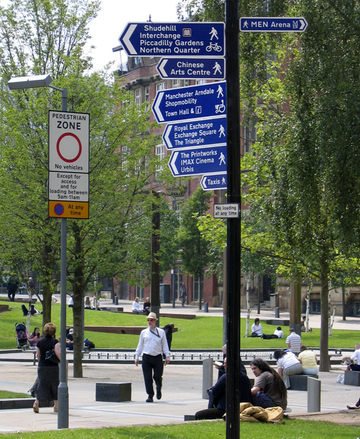

"The Unitary Patent might be able to open the floodgates for software patents in Europe," says this new analysis, published earlier today in a lawyers' site. It echoes many of the warnings from the likes of FFII, among other European groups that have repeatedly warned about the Unitary Patent (UPC).
"It echoes many of the warnings from the likes of FFII, among other European groups that have repeatedly warned about the Unitary Patent (UPC)."The long piece is titled "The Murky Waters Of Software Patents" and it's not as positive as one might expect. Given the publication it comes from (pro-patents), it's hardly surprising at all. "Software patents," says the author, "have been the subject of much debate – not only in the US, but also in Europe. This has been a thorny issue for many years and the future of software patents still remains unknown. At the outset, a breakdown of the differences between patents and copyrights will highlight why the patent is the form of intellectual property which is proving to be the most problematic with regards to software."
The author later alludes to Alice, which we may write a lot more about tomorrow. "In the US," he says, "software patents have been in existence since the early 1970s, but courts have recently started to reject software patents. The courts have ruled that simply "doing something on a computer" does not enable one to obtain a software patent on the matter. After hundreds of thousands of patents being issued, it became clear that there needed to be more restriction and the courts have recently been invalidating patents that were already granted. In 2014, in the landmark Alice Corp judgment, the courts stated "the mere recitation of a generic computer cannot transform a patent ineligible abstract idea into a patent eligible invention." Thus the US is now retreating from its original position of granting software patents somewhat liberally."
Then the author writes about Europe, in particular about the effects of the UPC. "The Unitary Patent," he explains, "is a very recent brainchild of the European Patent Office. Through one single request, one will be able to obtain patent protection in 25 member states (Spain, Italy and Croatia are not currently participating). This patent will be subject to the exclusive jurisdiction of the Unitary Patent Court, which will comprise of a court of first instance, a court of appeal and a registry.
"The rulings of this court will affect the Member States who have ratified the agreement. The EPO hopes that the establishment of the court will add to more predictability in proceedings and avoid parallel litigation. Since all unitary patents will thus have their own court, there is also an expectation of faster and more efficient procedures than if these were to be held in the relevant Member States. So far, seven Member States have ratified the agreement – and Malta was among the first to do so. It will come into force once it has been ratified by thirteen states, which is expected to be around 2016. Nevertheless, the position of software patents under this new patent system will remain to be seen. When it comes into force, it will lay the cornerstone for more debate on the subject – as being able to achieve a unitary software patent will mean that it will automatically be recognized in all the Member States.
"The Unitary Patent might be able to open the floodgates for software patents in Europe, since if it allows for software patents, they will become immediately applicable in all the EU Member States. The same might be said for the contrary – however, the fact that the EPO allows for a Unitary Patent court of appeal means that this discussion might go on for years to come."
Another site of patent lawyers now informs us of "Progress on the Unitary Patent". It says that "[o]n 10 July 2015, the Preparatory Committee (which handles all the subsidiary issues arising from the creation of the Unified Patent Court (“UPC”), such as HR or IT management) met to discuss the last (18th) draft of the Rules of Procedure for the UPC. They are expected to reach an agreement on a final set of Rules in October 2015.
"The draft Protocol on Provisional Application of parts of the Agreement on a Unified Patent Court was also on the agenda as well as the salary package of the judges, the privileges and immunities of the UPC and the division of costs and responsibilities."
According to this, Portugal too has caved in without even consulting or liaising with its citizens. What a coup!
"Confirmation of Portugal’s ratification of the UPC Agreement was published on 6 August 2015," says a site about the UPC, "in the country’s Official Gazette of legislation. In the Diário da República Eletrónico, the Decree of the President of the Republic No. 90/2015 indicated that Aníbal Cavaco Silva had approved the UPC Agreement on 30 July 2015 following Parliament’s approval (No 108/2015) on 10 April 2015; a certified copy of the original UPC Agreement was also published in English and Portuguese. See here."
Here in the UK as well, without even consulting citizens, the government is now preparing for the UPC. Nobody voted for it. This just serves to show how undemocratic the European Union has become, possibly even worse than the EPO alone.
What happens here is similar to what happens in New Zealand right now [1, 2, 3], with persistent efforts to thwart the law (a law banning software patents) through all-encompassing 'trade' deals, effectively 'laundering' the law at the behest of rich and powerful people who collude in secret. In New Zealand, the loopholes for software patenting have thus far been similar to Europe's "as such". ⬆